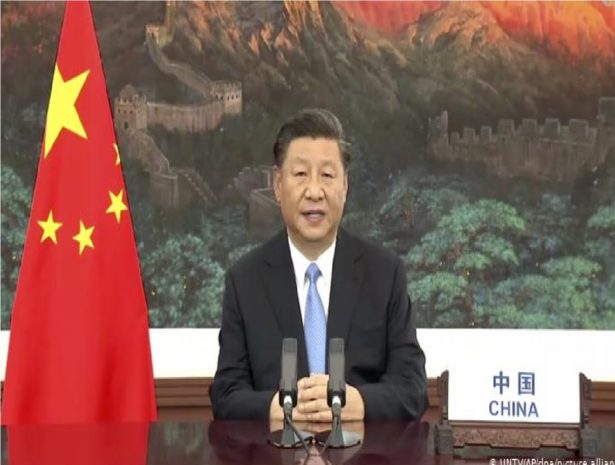
UK Parliament panel warns of China’s ”bullying” in multilateral arena
PTI, Jun 17, 2021, 6:23 PM IST

London: There is evidence of China’s increasing use of “aggressive” means to “coerce” states to back their position or their candidates towards a steady acquisition of key official positions in multiple multilateral organisations, a report by an influential UK parliamentary panel warned on Thursday.
The House of Commons Foreign Affairs Committee (FAC) said its evidence spoke of an increasingly “bullying” stance of China in its dealing with organisations such as the United Nations and World Health Organisation (WHO).
In its ‘In the room: the UK”s role in multilateral diplomacy’ report, the committee calls upon the UK to take a more proactive role in combating the influence of countries who seek to manipulate and undermine multilateral organisations and mobilise the soft power of the Foreign, Commonwealth and Development Office (FCDO) to strengthen democracies.
“The report found evidence of China’s increasing use of aggressive means, including exploiting bilateral economic leverage, to coerce states to back their position or their candidates and then using the organisations to shift policies away from the cooperation the organisations were created to promote,” the FAC notes.
“The use of aggressive diplomacy by China, or ”bullying”, can be seen in operation at the United Nations Office for the High Commissioner for Human Rights (OHCHR) and the United Nations Human Rights Council (HRC) as well as the World Health Organisation (WHO). The report found that threats from multilateral organisations can come in more subtle forms.
For example, the steady acquisition of key official positions in multiple multilateral organisations by the Chinese government,” it said.
“The Foreign, Commonwealth & Development Office (FCDO) should take a leading role in maintaining strong and effective engagement with multilaterals. Disengagement only creates a vacuum, which allows authoritarian states greater influence and control. The new Biden administration represents a positive shift towards increased engagement and the potential for joint action with the US,” it adds.
The central warning of the inquiry by the cross-party group is against autocratic states attempting to seize control of strategically important organisations, to weaponise them, and to fundamentally redefine universally agreed principles on which they are based and that “democracies are doing too little to defend their interests.”
“There is a very real risk that democratic states will lose multilateral organisations to authoritarian states. The influence of state actors with alternative understandings of individual rights, a key principle upon which the modern international system is based, is increasing,” it warns. Tom Tugendhat, Conservative Party MP and Chair of the FAC, said it is clear that dictatorships are taking over the institutions built out of the wreckage of World War II to defend democracy.
“We need to work with partners in the US, Europe and around the world if we want our voice to be heard,” said Tugendhat.
“The outbreak of COVID-19 has thrown this into stark relief. The WHO, which benefits from so much UK assistance, has been dominated by China, which contributes far less. As a power whose strength comes from global connections, confidence in our laws and institutions, and the skills of our envoys, we know that size is not the only thing that matters,” he said.
The FAC report flags instances of threats of capture through funding, and funding used as unacceptable leverage. It warns that voluntary earmarked funding represents a significant vulnerability because the agendas of multilateral organisations can be significantly influenced by their donors, even those who give comparatively little support.
The report focuses in on six multilateral organisations specifically – the Organisation for Security and Cooperation in Europe (OSCE); the United Nations Office for the High Commissioner for Human Rights (OHCHR); the United Nations Human Rights Council (HRC); WHO; the International Criminal Police Organisation (INTERPOL); the World Trade Organisation (WTO); and the International Criminal Court (ICC).
Udayavani is now on Telegram. Click here to join our channel and stay updated with the latest news.
Top News

Related Articles More

India, US seal pact to enhance cooperation in cybercrime investigations

Indian national sentenced to 8 years for attempted attack on White House

Hindenburg, which targeted Adani, shuts shop

Israel, Hamas have reached ceasefire, hostage deal: Joe Biden

Spanish consulate soon to be opened in Bengaluru: Jaishankar
MUST WATCH
Latest Additions

6 Rohingya women arrested in Tripura while returning to Bangladesh from Bengaluru

CBI court convicts Himachal IG, 7 other cops in custodial death case

India, US seal pact to enhance cooperation in cybercrime investigations

Aero India 2025: BBMP bans meat stalls, non-veg eateries from Jan 23 to Feb 17

Rohit Sharma hints players have reservations about 10-point diktat, to discuss issue with BCCI
Thanks for visiting Udayavani
You seem to have an Ad Blocker on.
To continue reading, please turn it off or whitelist Udayavani.


















